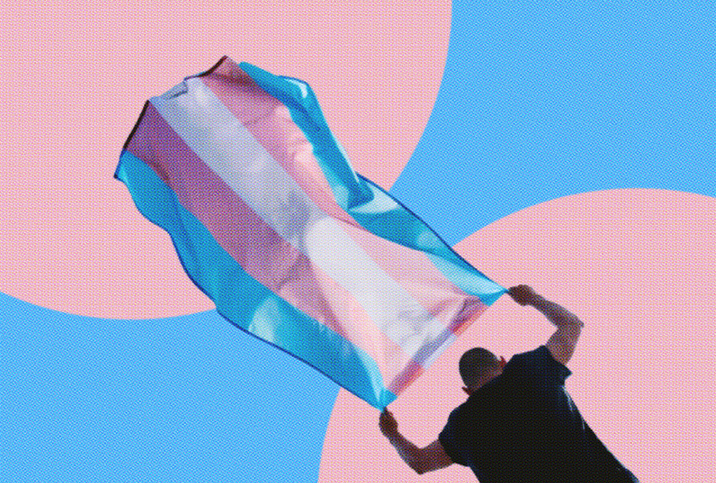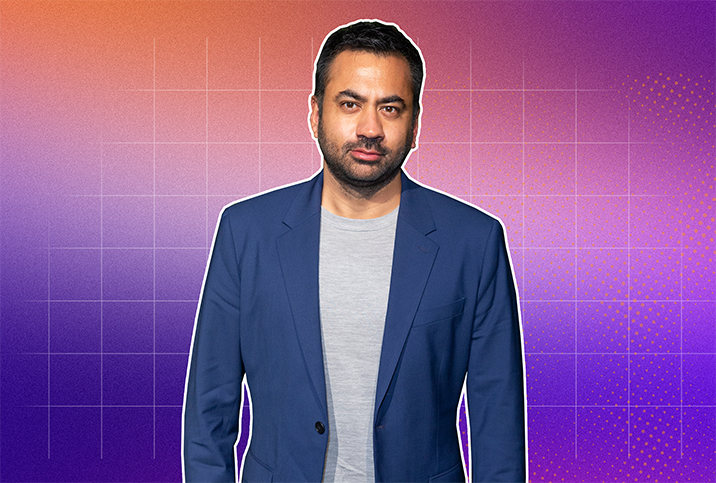What It Means to Be a Gay Icon
The evolution of sex and LGBTQIA+ civil rights in the United States occurred simultaneously. Not on purpose, but, of course, it would be impossible to advocate for the liberation of one without the other, and, naturally, many of history's groundbreaking or shocking voices about sex were queer.
Individuals who were willing to be the face of everything "sex" encompassed queer people, especially at times when the LGBTQIA+ community was nearly nonexistent, and gave rise to the possibility of new generations of queer artists and creatives reaching unprecedented levels of fame.
It's unlikely the original trailblazers anticipated stardom or recognition, and instead actively chose to sacrifice careers and livelihoods to achieve authenticity in life.
Rooted in history
From advertising commercials to brand press releases, American capitalism today runs on the marketing power of acceptance and inclusivity. The moral compass that guides the industry makes it easy to forget that the federal legalization of gay marriage happened only recently, in 2015.
Malcolm Lazin, founder and executive director of the Equality Forum, works to ensure LGBTQIA+ voices and achievements are not forgotten.
The Equality Forum, an international LGBTQIA+ civil rights organization, operates LGBT History Month, which celebrates the achievements of 31 lesbian, gay, bisexual and transgender Icons. Each day in every October, a new LGBT Icon is featured, complete with a video, a bio, a bibliography, downloadable images and other resources to commemorate their contributions. To date, 496 Icons have received the honor, and anyone contemporary must be out to be considered. It's one of the few available resources dedicated to remembering queer history.
"Harvey Milk is just one of the hundreds of similarly inspiring stories," Lazin said, referencing the first openly gay to hold an elected office in California, in 1977. "I think it's important to recognize we're the only minority community worldwide that is not taught its history at home, in public schools or in religious institutions. Yet, we have so many unbelievably powerful stories of people who've stepped forward—increasingly often in recent years."
Building on the past, looking to the future
"It's not that long ago that being out meant losing your ability to commercialize your name and make money off your reputation," Lazin continued. "Now, that's not necessarily a consideration of anything, and sometimes it may very well be a plus. The most recent commercial I saw was of Lil Nas X and Elton John, two clearly gay men, and there weren't any illusions about them being straight. And I think it's fascinating to see how society's changing."
American support for LGBTQIA+ rights is higher than ever before. In a 2021 report, the Public Religion Research Institute (PRRI) reported that 76 percent of Americans support laws that protect LGBTQIA+ individuals from being discriminated against in housing, jobs and public life.
However, with Republicans in Texas recently succeeding in re-criminalizing abortion across the state, with bounties for those aiding women in need, any minority should question the fragility of their rights. What would make it impossible to re-identify queerness as a mental disorder besides enough lobbying funding?
'People now understand the humanity of the issue. It all builds on itself. A celebrity like Lil Nas X stands on a lot of shoulders.'
A person might question what real liberation looks like if laws can be reversed like this. Looking back, could gay marriage in 2015 truly indicate the new status quo if RuPaul didn't win his first Emmy until 2016? Lazin explained the ripple effects of visibility, using Christine Jorgensen and Renée Richards as examples of the torch of progress. Jorgensen was the first person to become widely known in the United States for having gender confirmation surgery in 1954, and Richards became the first trans woman to compete in the 1976 U.S. Open.
"Here's what I think becomes important," Lazin explained. "From the viewpoint of Jorgensen and Richards, they were taken as an anomaly. People now understand the humanity of the issue. It all builds on itself. A celebrity like Lil Nas X stands on a lot of shoulders."
Intersectionality is vital
Historically, people wielding a combination of these prejudiced qualities are the last to be considered "first." Although trans talent is only now starting to receive widespread recognition, it's interesting to see the stepping stones to Lil Nas X becoming the first Black gay rapper to top Billboard, Billy Porter the first openly gay Black man to win an Emmy for lead actor or even a journalist like Zach Stafford back in 2018 becoming the first Black gay editor-in-chief of Advocate magazine, the longest-running LGBTQIA+ publication.
"It was a lot of pressure, but it's motivating in many ways," Stafford said of the achievement. "There's also the fragility of it, where I'm the first, but it doesn't mean there's going to be another. So we also have to see how people continue to impact and how they keep changing, and that's where I'm looking at the iconic symbol now."
Stafford emphasized the power of change is integral to queer liberation.
"[The social structures that govern our behavior] can be reshaped and reimagined," he said. "That's why queer people are so powerful, especially trans and gender-bending folks. They show society that we don't have to stay in a box. You don't have to be one way—you can be a lot of ways and still be happy, healthy and successful. As a country, we have religious roots—you know, we're puritanical. 'Sex is bad, your body is bad.' And to be queer is to remind people that you have a body and a body that desires things, and that's seen as dangerous."
'Every story in the past, from a hurricane to an election to tax evasion, has queer people in it.'
Stafford indicated that reclaiming history is part of the work needed to preserve queer culture.
"If we're 10 percent of the total population, then we're 10 percent of every single story," he said. "That means every story in the past, from a hurricane to an election to tax evasion, has queer people in it. I think that's why history is important, because it reveals the reality of what was happening and the context. We can do that by changing education systems and ensuring LGBTQ history is taught in tandem with other histories."
However, Stafford understands that setting lofty goals, and even achieving them, will not solve the deepest problems at hand.
"There will always be work to be done," he explained. "If you begin a social justice movement thinking it's like a physical journey where you start at point A and have to get to point B, you're going to get tired and quit. So every day, we have to wake up and commit to being better people and ensuring everyone has a seat at the table. And always building bigger tables and adding more seats. It's a daily practice and a way of living your life."
Stafford believes taboo, stigma and shame all come back to maintaining patriarchy and power. Everyone marginalized by these structures can be less marginalized in union together.


















